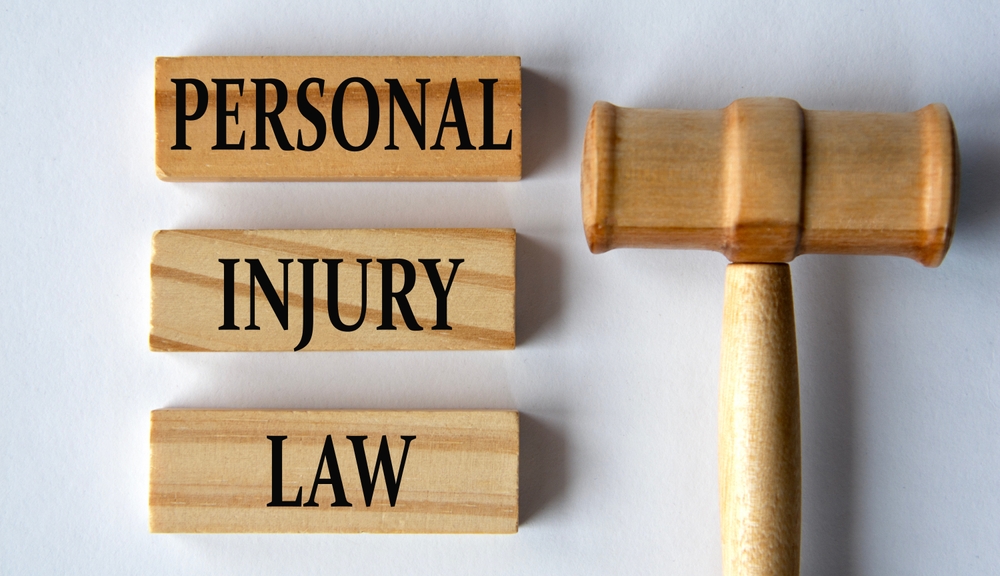Completing a deposition can feel like finishing a marathon. You have spent hours answering questions under oath, and it is a significant and often stressful milestone in your case. It is completely normal to walk away feeling drained and wondering, "What's next?"
The path forward from this point can seem unclear, but the post-deposition phase is critical and active. This is when the information gathered is analyzed, strategies are refined, and your case moves toward a resolution through a settlement or a trial.
You need an Manhattan personal injury lawyer who can explain what happens in your personal injury lawsuit after the deposition, demystifying the process and giving you a clearer sense of the road ahead.
- A deposition is a formal, out-of-court session where you provide sworn testimony.
- The information from the deposition helps both sides evaluate the strengths and weaknesses of the case.
- This next phase is just as important as the events leading up to the deposition.
Schedule a Free Case Evaluation
From Testimony to Trial Prep
After the court reporter types up every word spoken during your deposition, the transcript becomes a key piece of evidence. A transcript is the official written record of your testimony.

Your legal team and the defense lawyers will review this document carefully. This period is less about new, sudden events and more about careful analysis, strategic legal moves, and intensive preparation.
Think of it less like a sprint and more like navigating the complex but interconnected subway lines from Queens to Manhattan; each stop is a calculated step toward your final destination.
- Review and Correction: You will likely be given a chance to read your deposition transcript and sign an errata sheet. An errata sheet is a document where you can correct any transcription errors, like a misspelled name or an incorrect date.
- Strategy Assessment: Your lawyer will analyze your testimony to see how it holds up. They will look for consistent themes, powerful statements, and any areas that the opposing side might try to attack.
- Next Steps Planning: Based on the deposition, your attorney will map out the next moves, which often involve a combination of legal filings, settlement negotiations, and trial preparation.
Analyzing the Deposition Transcript: The Story in Your Words
The deposition transcript is more than just a Q&A document; it is a cornerstone of your personal injury lawsuit. It locks in your story. Before the deposition, the defense only had medical records and accident reports.
Now, they have heard your account in your own words. This is often the first time they can truly assess how a jury might perceive you and your injuries.
- Consistency is Key: Your lawyer will compare your deposition testimony to your initial statements, medical records, and answers to written questions (called interrogatories) to ensure the story is consistent.
- Identifying Strengths: Powerful, clear, and honest testimony about how an injury from a construction accident in Westchester or a slip and fall in a Suffolk County grocery store has affected your life can be a major strength.
- Anticipating Defenses: Your lawyer will also use the transcript to predict the defense's arguments. If they asked many questions about a prior injury, for example, your lawyer will prepare to counter arguments that your current condition is not related to the accident.
The Role of Motions: Shaping the Case Before Trial
Following depositions, a personal injury lawsuit's "motion phase" often kicks into high gear. A motion is a formal, written request asking the court to rule or take specific action on a legal issue.
These motions can greatly affect the case, sometimes even ending it before it ever reaches a jury. This is a highly technical part of the legal process where your attorney's experience is vital.
Motion for Summary Judgment in a Personal injury Lawsuit
This is one of the most significant motions. The party filing for summary judgment essentially tells the judge, "Your Honor, based on the undisputed facts, the law is so clearly on my side that there is no need for a trial." The defense often files this motion after a deposition.
- The Goal: They will argue that even if everything the injured person (the plaintiff) said in their deposition is true, they still cannot win their case as a matter of law. For example, they might argue that the evidence shows they were not negligent or did not cause the injury.
- The Standard: To win a summary judgment motion, the filing party must show there is no "genuine issue of material fact." This means there are no important factual disagreements that a jury needs to decide.
- The Opposition: Your attorney will file a response, called an opposition, pointing to evidence (including your deposition testimony, witness statements, and expert reports) that shows critical facts in dispute require a trial.
Motions to Exclude Evidence (Motions in Limine)
As a trial gets closer, both sides may file motions in limine. These are requests to the judge to exclude certain evidence from being presented to the jury. The goal is to prevent the other side from introducing information that could be irrelevant, unfairly prejudicial, or improper.

- Common Examples: A defense lawyer might file a motion to prevent you from mentioning that their client is a large corporation with a lot of money. Your lawyer might file one to exclude any mention of a minor, unrelated medical issue you had years ago.
- Setting the Rules for Trial: The judge's rulings on these motions set the ground rules for the trial. This helps streamline the proceedings and ensures the jury's decision is based on relevant and proper evidence.
- Strategic Advantage: Successfully excluding harmful evidence or ensuring your key evidence is admitted can be a major strategic victory before the trial even begins.
The Final Push for Settlement
The vast majority of personal injury lawsuits do not go to trial. They end in a settlement, which is a formal agreement between the parties to resolve the case for a certain amount of money.
The period after depositions is a prime time for settlement negotiations to become serious. Now that both sides have "laid their cards on the table," they have a much clearer picture of the risks and potential outcomes of a trial.
Informal Negotiations
This is often the first step. Your lawyer and the defense lawyer will communicate directly, by phone or email, to discuss a potential settlement number. Your attorney will present your case's strengths, referencing your deposition testimony and other evidence, to justify the demand.
- Demand and Offer: Your lawyer will typically make a formal settlement demand, and the defense will respond with a counteroffer.
- Back-and-Forth: This can involve several rounds of negotiation as the two sides try to close the gap between their positions.
- Your Authority: Your lawyer cannot accept a settlement without your permission. They will advise you on the offers and provide their assessment, but the final decision to accept or reject an offer is always yours.
Mediation
If informal talks stall, the next step is often mediation. Mediation is a more structured negotiation process guided by a neutral third party called a mediator. The mediator, often a retired judge or an experienced lawyer, does not have the power to force a decision.
Their job is to help the two sides find common ground.
- The Process: You and your lawyer will be in one room, and the defense representatives in another. The mediator goes back and forth between the rooms, relaying offers and discussing the strengths and weaknesses of each side's case privately.
- A Neutral Perspective: A good mediator can help both parties see the case from a different angle, highlighting the risks of going to trial, such as the uncertainty of a jury's verdict. This can help break a stalemate.
- Confidentiality: Everything said at mediation is confidential. If the case does not settle, nothing from the mediation can be used at trial. This allows for open and honest discussion.
Preparing for Trial: The Final Stage of a Personal Injury Lawsuit
Even while settlement talks are ongoing, a good lawyer prepares as if the case is definitely going to trial. This parallel preparation is crucial because it shows the defense that you are ready and willing to go before a jury, which can be a powerful incentive for them to make a fair settlement offer.
This is the most labor-intensive phase of a personal injury lawsuit.

- Lining Up Witnesses: Your attorney will finalize the list of witnesses who will testify on your behalf. This includes fact witnesses who saw the accident, as well as medical and economic professionals who will serve as expert witnesses.
- Preparing Exhibits: Evidence needs to be organized into exhibits that can be shown to the jury. This includes blowing up photographs of the accident scene, creating charts to illustrate your medical treatment, and preparing video clips of your deposition testimony.
- Developing Trial Strategy: Your legal team will be honing the story of your case. They will decide which evidence is most powerful, what order to present witnesses in, and what themes to emphasize to the jury, whether they are from Brooklyn, the White Plains, or Nassau County.
The journey through a personal injury lawsuit after a deposition is complex and multifaceted. It involves deep legal analysis, strategic negotiations, and meticulous preparation.
You have already navigated the difficult step of telling your story under oath; now, your legal team takes that story and uses it to advocate for you.
FAQ
How long does the post-deposition phase of a lawsuit usually take?
There is no single answer to this question, as it depends entirely on the specifics of your case. The timeline can range from a few months to more than a year.
- Case Complexity: A straightforward car accident case may resolve more quickly than a complex medical malpractice case involving multiple expert witnesses.
- Court Schedule: The court's own calendar plays a big role. It can take many months to get a date for a motion to be heard or for a trial to be scheduled.
- Negotiation Dynamics: If both sides are motivated to settle, the process can be quick. If they are far apart on their valuation of the case, it will likely take much longer.
If my personal injury lawsuit goes to trial, will I have to testify again?
Yes, if your case proceeds to a full trial, you will almost certainly have to testify again, this time in front of the judge and jury.
- Different Setting: While your deposition testimony is very important, testifying in a courtroom is the central event of the trial. This is your opportunity to speak directly to the jury.
- Thorough Preparation: Your lawyer will spend a significant amount of time preparing you for your trial testimony. You will review your deposition transcript and go over the questions you are likely to be asked by both your lawyer and the defense lawyer.
- The Power of Your Story: Your live testimony allows the jury to see and hear you as a person, not just as a name in a file. It is often the most impactful part of a plaintiff's case.
What is my role during this post-deposition phase?
While your lawyer is handling the legal work, your role remains very important. You are a crucial part of the team.
- Stay in Touch: Keep your lawyer updated on your medical treatment. Let them know if your condition changes, if you see a new doctor, or if you will be having a procedure.
- Be Patient and Responsive: This phase can feel slow, but a lot is happening behind the scenes. Be patient, but do not hesitate to call for an update. Respond promptly if your lawyer's office needs you to sign a document or provide information.
- Focus on Your Recovery: The most important thing you can do is continue with your medical treatment and focus on getting better. Following your doctor's orders is not only best for your health but also critical for your case.
To discuss your situation, please contact our New York City office at (212) 406-1700 or our White Plains office at (718) 892-0400.